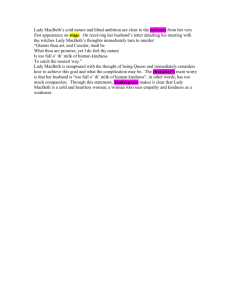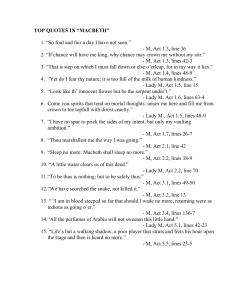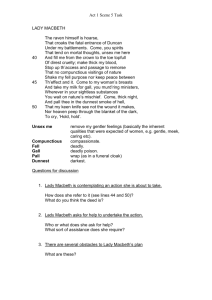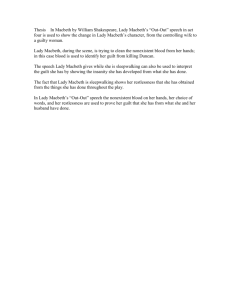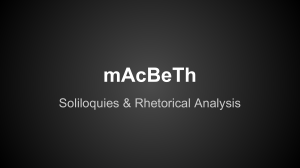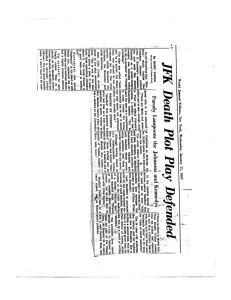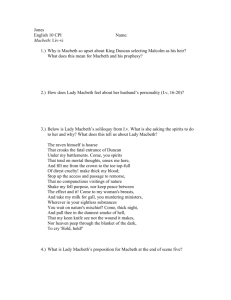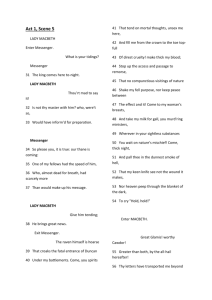The raven himself is hoarse – Lady Macbeth
advertisement
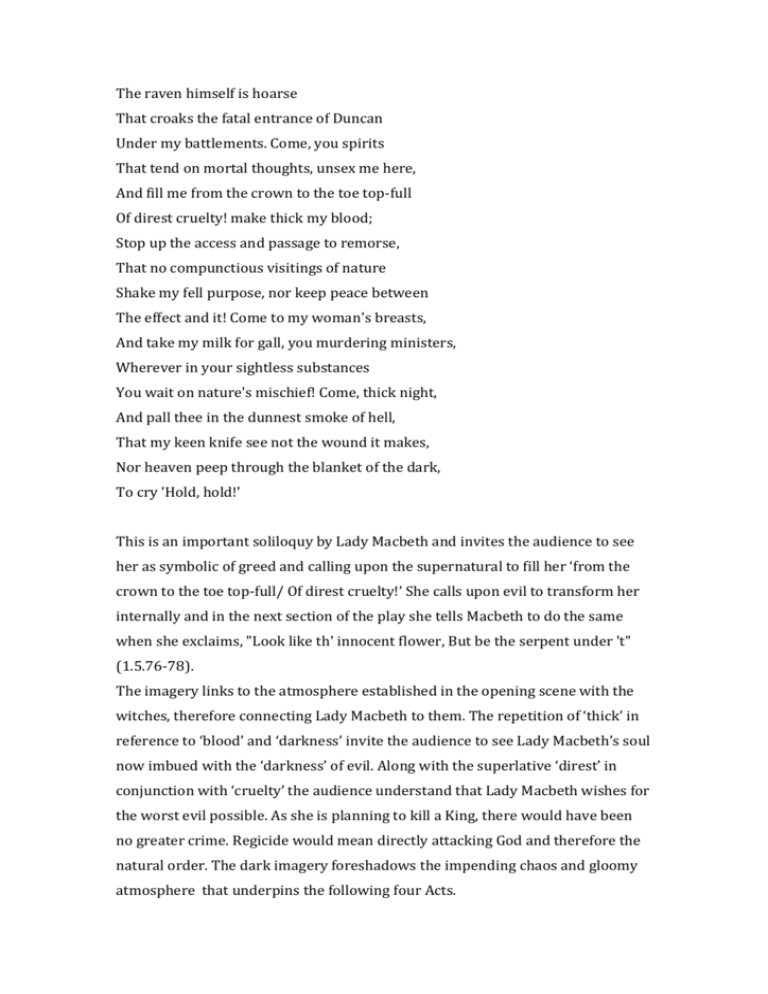
The raven himself is hoarse That croaks the fatal entrance of Duncan Under my battlements. Come, you spirits That tend on mortal thoughts, unsex me here, And fill me from the crown to the toe top-full Of direst cruelty! make thick my blood; Stop up the access and passage to remorse, That no compunctious visitings of nature Shake my fell purpose, nor keep peace between The effect and it! Come to my woman's breasts, And take my milk for gall, you murdering ministers, Wherever in your sightless substances You wait on nature's mischief! Come, thick night, And pall thee in the dunnest smoke of hell, That my keen knife see not the wound it makes, Nor heaven peep through the blanket of the dark, To cry 'Hold, hold!' This is an important soliloquy by Lady Macbeth and invites the audience to see her as symbolic of greed and calling upon the supernatural to fill her ‘from the crown to the toe top-full/ Of direst cruelty!’ She calls upon evil to transform her internally and in the next section of the play she tells Macbeth to do the same when she exclaims, "Look like th' innocent flower, But be the serpent under 't" (1.5.76-78). The imagery links to the atmosphere established in the opening scene with the witches, therefore connecting Lady Macbeth to them. The repetition of ‘thick’ in reference to ‘blood’ and ‘darkness’ invite the audience to see Lady Macbeth’s soul now imbued with the ‘darkness’ of evil. Along with the superlative ‘direst’ in conjunction with ‘cruelty’ the audience understand that Lady Macbeth wishes for the worst evil possible. As she is planning to kill a King, there would have been no greater crime. Regicide would mean directly attacking God and therefore the natural order. The dark imagery foreshadows the impending chaos and gloomy atmosphere that underpins the following four Acts. The soliloquy opens with the ‘Raven’ as a symbol of evil and misfortune. For the audience it is described as being ‘hoarse’ emphasising the evil as an extreme as it waits for Duncan’s fatal arrival. Connotations associated with ‘battlements’ continue the earlier references to the battle-field as Lady Macbeth prepares herself for her battle against all that is good.

